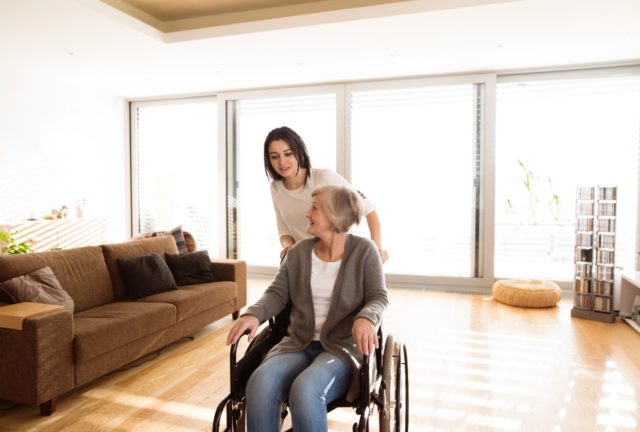
If you have children, you certainly remember the advice from all those parenting books you read when expecting your first child. However, when it comes to looking after an elderly person, things are not always clear according to the professionals at Senior Care Center.
Things change either gradually or fast and each is vastly different. If this is your first time taking care of a senior, chances are you do not know where to begin, let alone how to go about it.
Start the caregiving discussion as early as possible. Talking with the older adult about this aspect before they actually need care will help ease things when it comes to it. For instance, you may want to bring up the subject with a loved one even if they’re healthy. Find out what they would like to occur if they fall ill. Would they like in-home care? Live in an assisted living center or senior home health care? Or do they prefer moving in with you? This is not an easy conversation to initiate and it’s tempting to put it off. However, it is best for everyone if you address potential issues early on.
Seek guidance. When you take the caregiving role, you’ll have a lot of questions. How do you actually take care of your loved one? What should he or she be eating? Can they still move or drive? Consider checking into local resources for caregivers. Organizations like the Local Area Agency on Aging or even the Red Cross usually offer caregiving classes.
Seek caregiver support. Connect with fellow caregivers as soon as possible. Caregivers support groups and forums are an excellent way to exchange advice and tips. These groups ideally present an opportunity for you to express your concerns and get support for some of the difficult decisions you will have to make along the journey. You can also get in touch with a doctor or a caregiving organization for your caregiving inquiries and concerns.
Seek assistance. When you take on the role of a caretaker, you should never wait until you are fully overwhelmed with the task to seek assistance. Get in touch with your friends and loved ones and talk about ways that they can help, both currently and in the future. Ideally, look into the form of assistance you can get at home or in local adult day cares and senior centers. While in-home health care can be costly, you may be able to find volunteers that provide some respite care for free.
Look into local nursing homes and senior care facilities. Even if your senior loved one is doing great on their own, it never hurts to visit caregiving facilities and see what they have to offer. Should the older adult ever require one, your work will be easier as you will have the best options at your fingertips. Bear in mind that some nursing homes and assisted living residences have waiting lists and it may take years to get a spot. As such, you may want to act early before your loved one starts facing physical or mental hurdles.
Consider both financial and legal implications. It is also wise to start thinking about some of the financial and legal hurdles you may encounter when you take on the caregiving role. If your loved one goes to a senior care center or nursing home, how will they afford it? Does he or she have a will? Would you sell the property? How does the power of attorney work? Tackling all these issues can be daunting, but it is always best to be abreast on each so that nothing comes by surprise. Consult an elder law attorney, social worker, geriatric care manager or even a caregiver’s organization for guidance.












